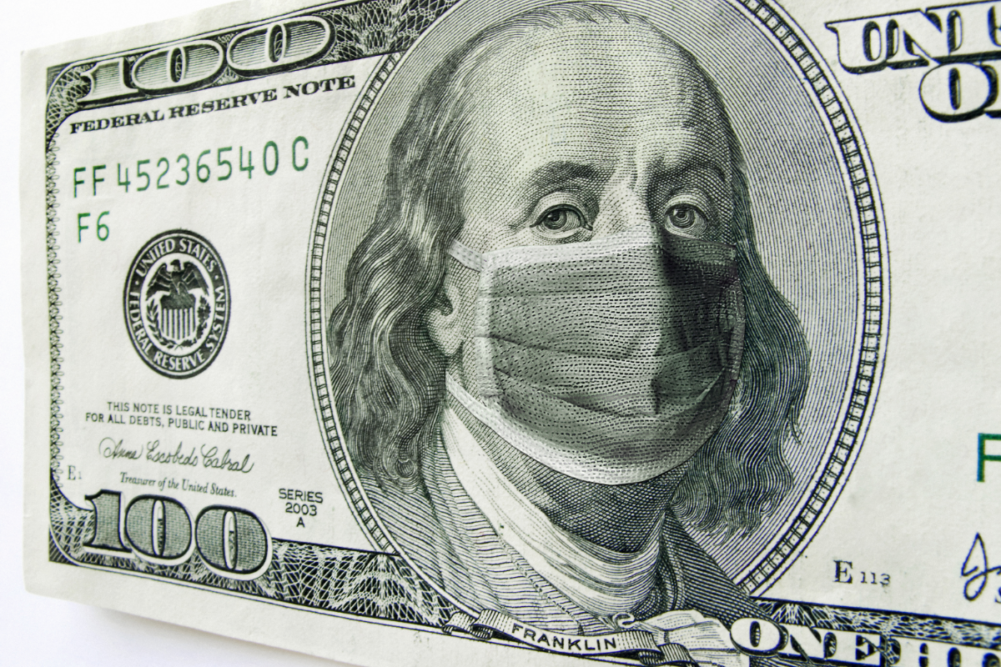 KANSAS CITY — Most discussion about the future of the US economy during the early days of the coronavirus (COVID-19) pandemic focused on letters like V, L, U and W. Optimists promoted a V-shaped recovery, with the abrupt economic deceleration followed by acceleration and a return to normal. Pessimists pointed to L, the sharp decline followed by a slow, grinding, time-consuming recovery. Recent statements and actions taken by the country’s leading banks show they are preparing for the worst.
KANSAS CITY — Most discussion about the future of the US economy during the early days of the coronavirus (COVID-19) pandemic focused on letters like V, L, U and W. Optimists promoted a V-shaped recovery, with the abrupt economic deceleration followed by acceleration and a return to normal. Pessimists pointed to L, the sharp decline followed by a slow, grinding, time-consuming recovery. Recent statements and actions taken by the country’s leading banks show they are preparing for the worst.
“Massive fiscal and monetary stimulus has allowed us to, in fact, kick the can down the road in terms of feeling the real effects of this recession,” said William S. Demchak, chairman, president and chief executive officer of PNC Financial Services Group, Inc., on July 15. “Much is going to depend on continuing support from the government as the economy continues to adjust to life with COVID. Unfortunately, what is becoming very clear, at least to me, is that there is a new normal that will have profound and lasting effects on parts of our economy and the workforce that supports it.”
One indicator to watch is the amount of money banks are setting aside to cover loans that may be defaulted upon. The nation’s four largest banks — JP Morgan Chase & Co., Citigroup, Bank of America and Wells Fargo & Co. — set aside $33 billion in the second quarter alone to cover potentially bad loans, according to the Wall Street Journal. This provision was on top of the nearly $20 billion set aside during the first quarter.
The banks have done well recently in generating fees for new loans from their commercial clients, but much of the money is not being invested. Companies are saving cash to weather continued economic uncertainties.
“Now that we’re looking at a more protracted downturn, we’re reserved for a much more broad-based impact across sectors,” said Jennifer A. Piepszak, chief financial officer of JP Morgan Chase on July 14. Sectors of the economy of concern specifically include retail, oil, gas and real estate, Ms. Piepszak said.
The Great Recession offers numerous lessons for food and beverage executives charged with guiding their businesses during these turbulent times. Consumer interest in value, economy pack sizes and affordable luxuries will all continue to trend.
But what makes forecasting in this economic downturn more difficult is the pandemic’s impact on restaurants and institutions. If current COVID-19 trends do not improve, this fall stands to be unlike any other as schools struggle to reopen safely and restaurants that have salvaged some business by moving some operations outdoors are forced inside by the onset of inclement weather.
“We are prepared for the worst case,” said James Dimon, chairman and chief executive officer of JP Morgan. “We simply don’t know. I don’t think anyone knows. And this — the word ‘unprecedented’ is rarely used properly. This time it’s being used properly. It’s unprecedented what’s going on around the world.”
Banking leaders are unique barometers of future economic conditions. They can see who has how much capital and how it is being used. That executives from the leading financial firms are expressing such high levels of uncertainty indicates the worst may be yet to come.





